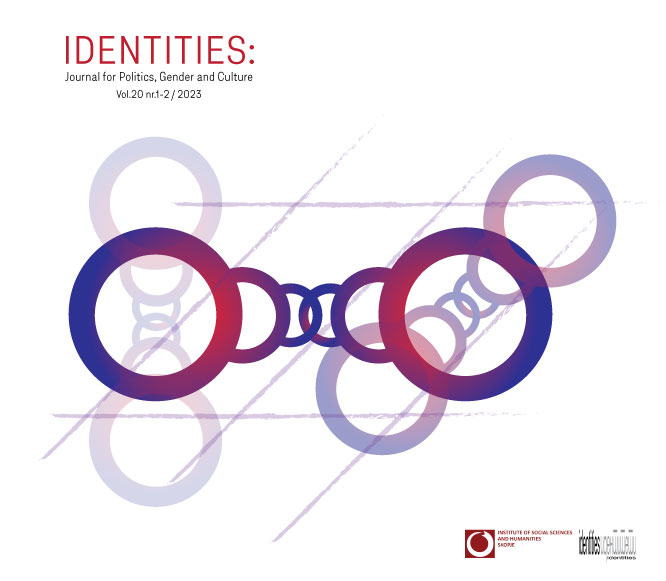Historical Reconciliation: Hungarian Lessons
DOI:
https://doi.org/10.51151/identities.v20i1-2.525Keywords:
historical reconciliation, entangled history, politics of history, HungaryAbstract
The article surveys attempts of historical reconciliation between Hungary and its neighbours after 1990. As Hungary’s neighbours are also successor states of the Kingdom of Hungary dissolved in 1918, their entangled history, often marred by violence and mutual discrimination was an important and conflictual issue around the change of regime. EU integration efforts led to attempts to implement historical reconciliation following the German model of Vergangenheitsbewältigung and Aufarbeitung and the Franco-German reconciliation. I argue that the result was ambiguous at best. Political tensions abated with all neighbours but without historical reconciliation. One reason for this failure was the division within the historiographic field that made politics easy to instrumentalize or intervene. Tensions receded more because politics started to abandon a historical argumentation in bilateral relations and tha could be a model to follow for states like North Macedonia and Bulgaria.
Author(s): Gábor Egry
Title (English): Historical Reconciliation: Hungarian Lessons
Journal Reference: Identities: Journal for Politics, Gender and Culture, Vol. 20, No. 1-2 (2023).
Publisher: Institute of Social Sciences and Humanities - Skopje
Page Range: 8-19
Page Count: 12
Citation (English): Gábor Egry, "Historical Reconciliation: Hungarian Lessons,” Identities: Journal for Politics, Gender and Culture, Vol. 20, No. 1-2 (2023): 8-19.

Downloads
Published
How to Cite
Issue
Section
License
Copyright (c) 2023 Identities: Journal for Politics, Gender and Culture

This work is licensed under a Creative Commons Attribution-NonCommercial-NoDerivatives 4.0 International License.
Identities is published under the following license: Creative Commons Attribution-NonCommercial-NoDerivatives 4.0 International (CC BY-NC-ND 4.0). Under this license, users of our content must give appropriate credit to authors and source as well as indicate if changes were made, cannot be used for commercial purposes, and, in the instance that it is built upon or transformed, may not be distributed. For Identities, the copyrights allow the audience to download, reprint, quote in length and/or copy articles published by Identities so long as the authors and source are cited. For more information on our license, see the following: https://creativecommons.org/licenses/by-nc-nd/4.0.








